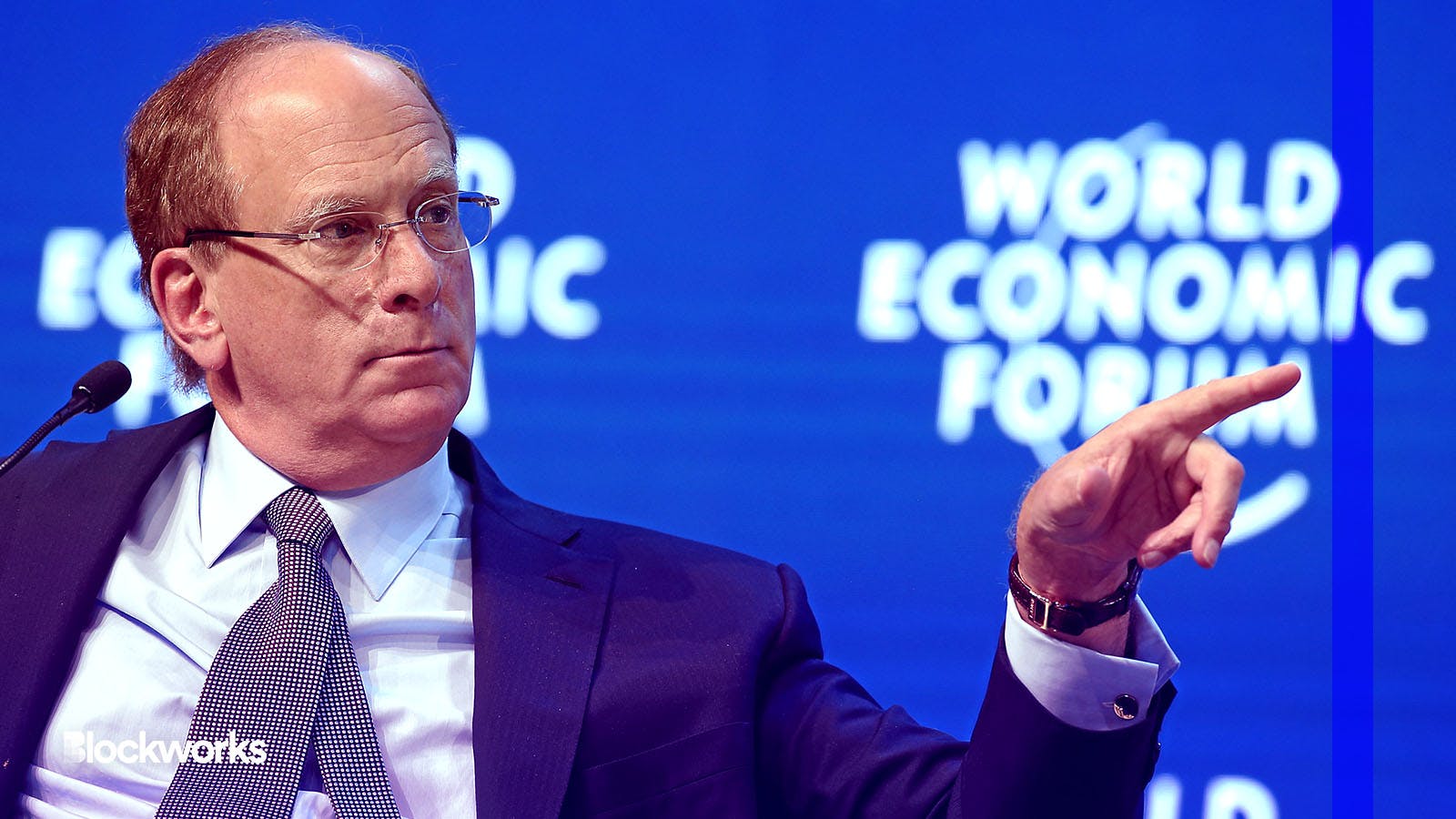Bitcoin ETF snapshot: Net outflow run hits five days for the first time
The BTC funds by BlackRock and Fidelity have both brought in net inflows during each of their first 50 days trading.

BlackRock CEO Larry Fink | WORLD ECONOMIC FORUM/swiss-image.ch/Photo Moritz Hager, modified by Blockworks (CC BY-NC-SA 2.0)
The 10 US spot bitcoin ETFs collectively saw net outflows each day last week — an unprecedented streak for the so far successful segment.
The funds saw $888 million of investor money leave over the five-day span, according to BitMEX Research data. The largest outflow chunks came on March 19 and March 20, at $326 million and $262 million, respectively.
Those net outflows slowed later in the week, with $94 million coming on Thursday and $52 million flowing out on Friday.
BlackRock’s iShares Bitcoin Trust (IBIT) had its all-time low flow total for a single day on Friday, tallying just $19 million, the BitMEX Research data shows.
Still, IBIT — along with the Fidelity Wise Origin Bitcoin ETF — have brought in net inflows during each of their first 50 days trading. Such a feat has never been accomplished by new ETFs, analysts note.
Read more: Bitcoin ETF catalyzing broader merge of TradFi, crypto: BlackRock exec
It was the first time the sector saw five straight days of net outflows. The ETFs had notched outflows on four straight days from Jan. 22 to Jan. 25.
The latest outflow streak came after a record week for the funds, during which they saw $2.5 billion of net inflows.
But bitcoin’s price dropped from nearly $68,000 on March 18 to below $61,000 on — a slip of more than 10%. It fluctuated up and down later in the week, but remained well off its all-time high of more than $73,000 set on March 14.
BTC’s price stood at $67,000 at about 7 a.m. ET Monday.
“We believe the recent price correction led to hesitancy from investors, leading to much lower inflows into new ETF issuers in the US,” CoinShares head of research James Butterfill wrote in a Monday report.
The new ETF bitcoin fund issuers exclude Grayscale Investments, which converted its Bitcoin Trust (GBTC) to an ETF on Jan. 11. GBTC’s nine competitors have often been able to more than offset the higher-priced Grayscale fund’s persistent outflows, but not last week.
GBTC outflows amounted to about $2 billion, while the other nine funds brought in about $1.1 billion.
Bloomberg Intelligence analyst James Seyffart said in a Monday X post that outflows may have been driven in part by bankrupt lender Genesis offloading its shares of GBTC.
“Expecting that to slow over the next week,” he added.
Get the news in your inbox. Explore Blockworks newsletters:
- The Breakdown: Decoding crypto and the markets. Daily.
- 0xResearch: Alpha in your inbox. Think like an analyst.






